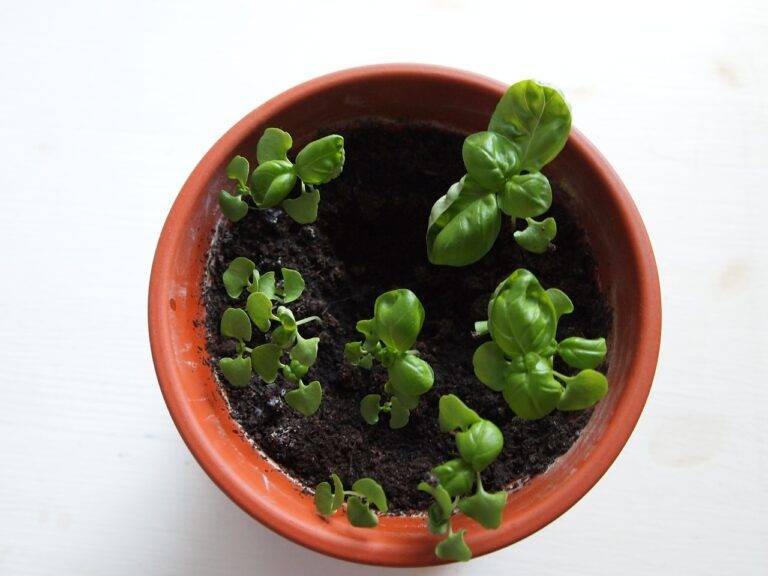Assessing the Impact of Household Chemicals on Septic Systems
11xplay online id, anna reddy book, golden7777.com admin:Assessing the Impact of Household Chemicals on Septic Systems
If you live in a home with a septic system, you likely know that it requires regular maintenance to keep it functioning properly. From regular pump-outs to watching what you flush down the toilet, there are many factors to consider when it comes to the health of your septic system.
One often-overlooked aspect of septic system maintenance is the impact of household chemicals. Many of the cleaning products we use on a daily basis can have a negative impact on septic systems, leading to costly repairs and potential environmental hazards. In this article, we will explore the effects of household chemicals on septic systems and provide tips on how to minimize their impact.
Understanding the Basics of Septic Systems
Before delving into the impact of household chemicals, it’s important to have a basic understanding of how septic systems work. A septic system is an on-site, underground wastewater treatment system commonly used in rural areas and homes that are not connected to a municipal sewer system.
A typical septic system consists of a septic tank and a drainfield. Wastewater from the home flows into the septic tank, where solid waste settles to the bottom and is broken down by bacteria. Liquid waste then flows out of the septic tank and into the drainfield, where it is further treated by the soil.
The bacteria in the septic tank are crucial for breaking down solid waste and maintaining the overall health of the system. Household chemicals can disrupt this delicate balance, leading to issues such as clogs, backups, and even system failure.
Impact of Household Chemicals on Septic Systems
Many common household chemicals can have a negative impact on septic systems. Here are some of the most common culprits:
1. Bleach: While bleach is an effective disinfectant and cleaner, it can kill the beneficial bacteria in the septic tank that are essential for breaking down waste. Overuse of bleach can disrupt the balance of bacteria in the tank, leading to system issues.
2. Antibacterial cleaners: Antibacterial cleaners contain chemicals that can also kill the beneficial bacteria in the septic tank. Using these cleaners regularly can disrupt the system’s ability to break down waste effectively.
3. Drain cleaners: Drain cleaners are designed to dissolve clogs in pipes, but they can also harm the bacteria in the septic tank. These chemicals are harsh and can disrupt the balance of bacteria in the tank, leading to system issues.
4. Laundry detergents: Many laundry detergents contain phosphates and other chemicals that can harm the bacteria in the septic tank. Using these detergents regularly can disrupt the system’s ability to break down waste effectively.
5. Household pesticides: Pesticides used around the home can leach into the soil and potentially harm the bacteria in the drainfield. Avoid using pesticides near the septic system to prevent damage to the soil and bacteria.
Minimizing the Impact of Household Chemicals
While it may be impossible to completely eliminate the use of household chemicals, there are steps you can take to minimize their impact on your septic system. Here are some tips to help keep your system healthy:
1. Use eco-friendly cleaning products: Look for cleaning products that are labeled as septic-safe or eco-friendly. These products are less harmful to the bacteria in the septic tank and can help maintain the system’s balance.
2. Use bleach sparingly: If you must use bleach, do so sparingly and in small amounts. Consider using alternative cleaners when possible to reduce the impact on the septic system.
3. Avoid antibacterial cleaners: Opt for regular cleaners instead of antibacterial products, which can harm the beneficial bacteria in the septic tank.
4. Limit the use of drain cleaners: Instead of using harsh drain cleaners, try alternative methods such as using a plunger or a drain snake to unclog pipes. These methods are less harmful to the septic system.
5. Be mindful of what you flush: Avoid flushing non-biodegradable items such as paper towels, diapers, and feminine hygiene products. These items can clog the system and disrupt its functioning.
6. Get regular maintenance: Schedule regular pump-outs and inspections of your septic system to ensure it is in good working order. A professional can assess the health of your system and provide recommendations for maintenance.
By following these tips, you can help minimize the impact of household chemicals on your septic system and keep it functioning properly for years to come.
FAQs
1. What household chemicals are safe to use with a septic system?
While it’s best to use eco-friendly or septic-safe cleaning products, some household chemicals are generally safe to use in moderation. These include baking soda, vinegar, and mild dish soap.
2. How often should I have my septic system pumped out?
On average, septic systems should be pumped out every 3-5 years, depending on the size of your household and the amount of wastewater generated. Regular pump-outs help prevent backups and ensure the longevity of your system.
3. Can I use a garbage disposal with a septic system?
Garbage disposals can put extra strain on a septic system by adding solid waste to the tank. While they are not prohibited, it’s best to use a compost bin or dispose of food waste in the trash to reduce the load on your septic system.
4. How can I tell if my septic system is failing?
Signs of a failing septic system include slow drains, gurgling noises in pipes, sewage backups, foul odors, and lush green grass over the drainfield. If you notice any of these signs, contact a professional to assess your system.
5. Can I use a septic system additive to improve its performance?
While septic system additives are marketed as a way to improve system performance, their effectiveness is debatable. Some additives can harm the bacteria in the tank and disrupt the system’s balance. It’s best to consult with a professional before using additives.
In conclusion, household chemicals can have a significant impact on the health of your septic system. By being mindful of what products you use and taking steps to minimize their impact, you can keep your septic system functioning properly for years to come. Regular maintenance and inspections are crucial for ensuring the longevity of your system and preventing costly repairs down the line. Remember, a healthy septic system means a healthy home and environment.







